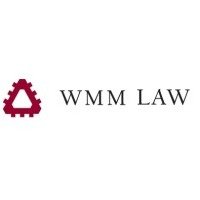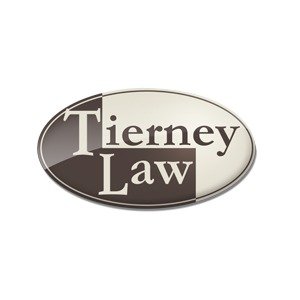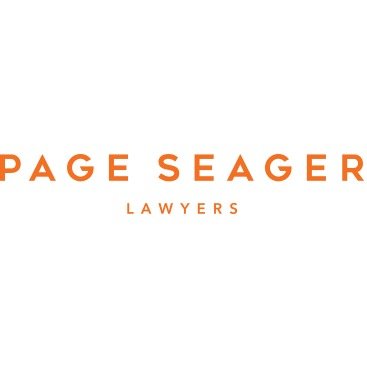Best Tax Increment Financing Lawyers in Hobart
Share your needs with us, get contacted by law firms.
Free. Takes 2 min.
List of the best lawyers in Hobart, Australia
About Tax Increment Financing Law in Hobart, Australia
Tax Increment Financing (TIF) is a financial mechanism that local governments in Hobart, Australia, may use to encourage economic development and infrastructure improvement. The concept involves capturing the future tax benefits of an increase in property values to fund current improvements. This can include a wide range of projects such as urban redevelopment, infrastructure upgrades, or bolstering economic growth in specific areas. TIF in Hobart is still developing as a concept, with local governance tailoring the model to meet both community expectations and economic goals.
Why You May Need a Lawyer
Sourcing legal assistance for Tax Increment Financing may be necessary under various circumstances such as:
- Project Development: Navigating the complexities of initiating and managing a TIF project.
- Regulatory Compliance: Ensuring compliance with local, regional, and national regulations.
- Dispute Resolution: Handling disputes that may arise between stakeholders such as developers, local authorities, and community members.
- Contractual Arrangements: Drafting and reviewing contracts and agreements related to TIF projects.
- Financial Management: Advice on financial structuring and managing risks associated with TIF financing.
Local Laws Overview
The application of Tax Increment Financing in Hobart is influenced by a set of local rules and regulations which include but are not limited to:
- Local Government Act: Governs the powers and responsibilities of local councils regarding TIF projects.
- Planning and Development Regulations: Oversee the planning stages of any development or infrastructure projects funded by TIF.
- Financial Management Policies: Guidelines on the fiscal aspects of executing a TIF project.
- Community Consultation Requirements: Ensures that residents are adequately consulted and informed about potential projects.
Frequently Asked Questions
What is Tax Increment Financing?
Tax Increment Financing is a public financing method used for subsidizing redevelopment, infrastructure, and other community-improvement projects through future property tax revenue increases.
How does TIF work?
TIF works by freezing the current tax value of an area, using the increment in tax revenue resulting from increased property values to finance improvement projects.
Who can propose a TIF project?
Typically, local councils, developers, or community groups can propose TIF projects, subject to governmental approvals and community support.
Are there risks involved with TIF?
Yes, risks include project delays, unrealized property value increases, and financial mismanagement, requiring careful planning and risk assessment.
Can TIF affect local tax rates?
TIF generally does not increase tax rates, as it relies on the increment in existing tax rates from improved property values.
What types of projects can TIF fund?
TIF can fund a variety of projects including infrastructure improvements, urban redevelopment, affordable housing, and public facility upgrades.
How long can a TIF district last?
The duration of a TIF district varies, often lasting for 15-30 years, depending on the agreement made to achieve project objectives.
How is the community involved in TIF decisions?
Community involvement often includes public consultations, hearings, and opportunities for feedback during the planning stages of a TIF project.
What happens if a TIF project doesn't meet its objectives?
If objectives are not met, it may lead to financial shortfalls, requiring adjustments in project scope or seeking alternative funding solutions.
Is legal advice necessary for TIF participation?
While not legally required, engaging legal experts can significantly help in ensuring compliance, managing risks, and optimizing project success.
Additional Resources
Consider exploring the following resources for further information on TIF in Hobart:
- Local Government Offices: Provide information and guidance on local TIF projects.
- The Planning Institute of Australia (PIA): Offers resources and insights into urban planning and development areas.
- Legal Firms Specializing in Public Finance: Can provide advice and assist with navigating the intricacies of TIF projects.
- Community Development Corporations: Often involved in promoting local development initiatives through TIF.
Next Steps
If you are considering a TIF project or need legal advice, it is crucial to conduct thorough research, understand local laws, and engage with professionals experienced in this field. Start by:
- Reviewing the financial and legal aspects of your project scope.
- Meeting with local council representatives to understand community needs and legal requirements.
- Consulting with a lawyer specializing in public finance and development to explore your options and ensure compliance with all legal norms.
- Engaging with community stakeholders to gain support and input for your project.
Lawzana helps you find the best lawyers and law firms in Hobart through a curated and pre-screened list of qualified legal professionals. Our platform offers rankings and detailed profiles of attorneys and law firms, allowing you to compare based on practice areas, including Tax Increment Financing, experience, and client feedback.
Each profile includes a description of the firm's areas of practice, client reviews, team members and partners, year of establishment, spoken languages, office locations, contact information, social media presence, and any published articles or resources. Most firms on our platform speak English and are experienced in both local and international legal matters.
Get a quote from top-rated law firms in Hobart, Australia — quickly, securely, and without unnecessary hassle.
Disclaimer:
The information provided on this page is for general informational purposes only and does not constitute legal advice. While we strive to ensure the accuracy and relevance of the content, legal information may change over time, and interpretations of the law can vary. You should always consult with a qualified legal professional for advice specific to your situation.
We disclaim all liability for actions taken or not taken based on the content of this page. If you believe any information is incorrect or outdated, please contact us, and we will review and update it where appropriate.

















